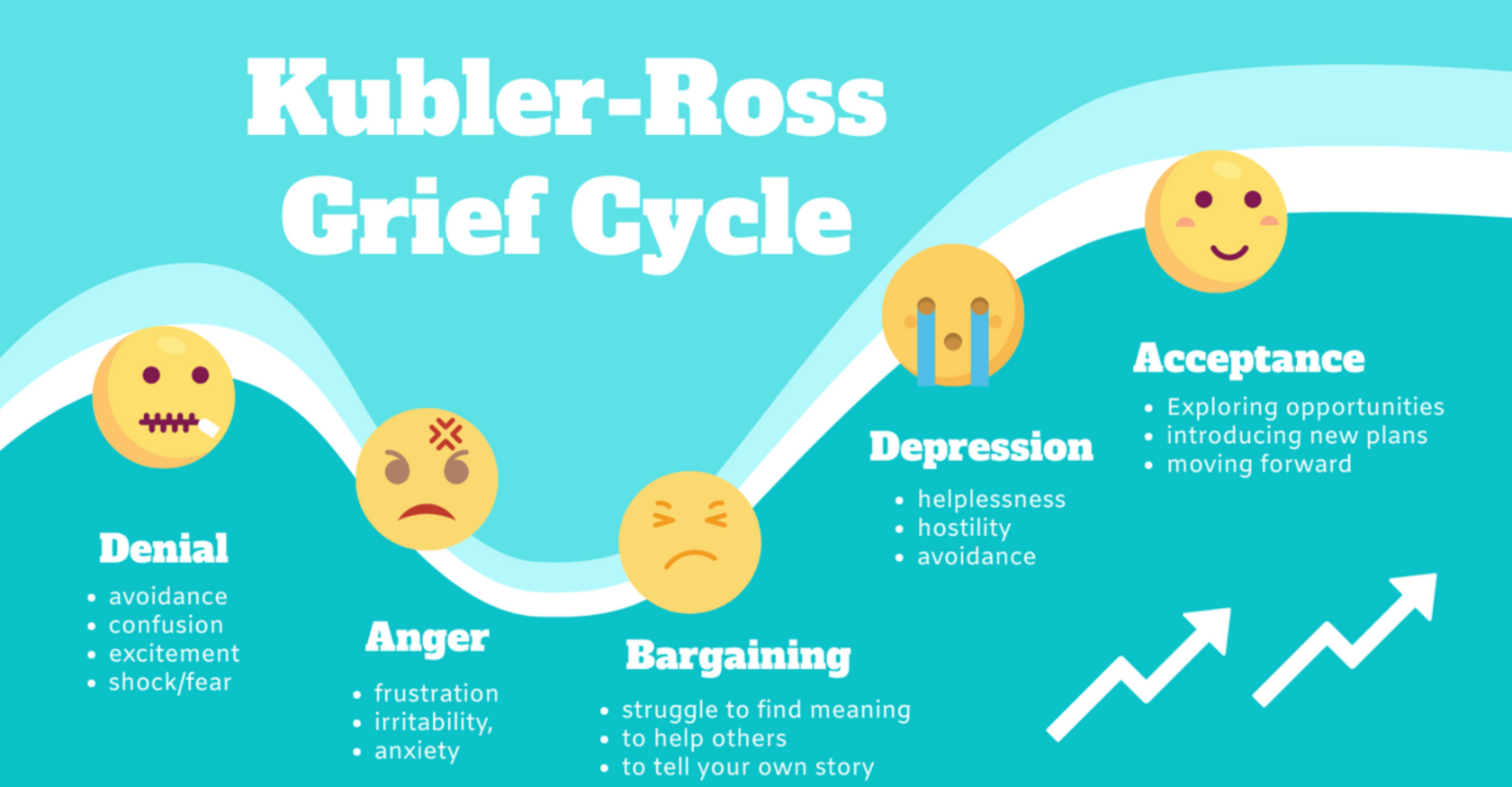Let’s walk through the five stages and help you find your Zen
A word of warning from Levsha: the final product may differ significantly from your expectations.
So you’ve commissioned your first localization. You wrote a comprehensive list of specifications, making note of absolutely everything. All that’s left is to kick back and wait a couple of weeks until a flawlessly executed localization is delivered. Once it does, you dig into it and... it’s nothing like what you expected. You don’t like it. Moreover, you’re probably fuming.
Naturally, you are aware that localization ≠ translation, and yet you will do your best to double-check the work your localization provider has delivered. Having undertaken that effort, you will undoubtedly encounter a common expression that you will put through Google Translate. And Google Translate will tell you that it’s a bunch of gibberish.
- Original
- Make a mountain out of a molehill
- Localization
- Делать из мухи слона
- Google Translate
- Make an elephant from a mouse
Therefore the initial approval process for any game localization is the most stress-inducing stage of the process, but it’s par for the course for every upstart developer. So what do you do? You start with leaving your emotions out of negotiations with your localization provider. You commissioned a localization from an experienced studio, so you ought to have some faith in their basic competence. All you have to do is clear up potential misconceptions.
You also have to carry your game all the way to release, with no nervous breakdowns if you can help it.
If your game’s success depends on how good the localization is, you have to manage your expectations. Placing undue expectations on it may have an adverse effect on your sense of self and your mental health. It’s up to you to live through this crisis.
Elisabeth Kübler-Ross, an American psychologist, has defined five distinct stages of grief. Her model could be applied to most stressful events in our lives, really. Approval process for your very first game localization falls under that umbrella, too. Let’s go over each stage together and learn to live through each one.

Denial. This is nothing like what I commissioned. This is malarkey!
You just checked your dictionary: this thing you got under the guise of localization is doodoo. God forbid you ever show this garbage to your second cousin thrice removed who studied a foreign language in college 10 years ago. Oh what a scathing critique she could have given you: the button should have said “Press” instead of “Push”, and the line the hero said should’ve been “Smash it to pieces” instead of a stunted “Crush it”. This localization is an affront to the Gamer Gods.
At first you may refuse to accept this reality. You may think to yourself: “They must have sent me the first draft or something. It couldn’t be that they have done such a terrible job.” Here’s our take: you can’t interpret the text literally in localization. By all means, break out the dictionaries and machine translation engines, show the text to your relatives, go wild — but reserve some healthy skepticism for your findings.
Case study: Localizers of Disco Elysium have translated the name of the Esprit de Corps skill—which defines the collective morale and camaraderie of police officers—into Russian as “Полицейская волна” [Police Wave]. Somebody let their imagination run a bit wild, right? You could say so, but considering that the skill in question is supposed to quantify the hero’s ability to connect instantly with his fellow officers and its original name alludes to strong connections and deep understanding between them, it doesn’t seem half bad. The Russian name alludes to a police radio station, and that analogy is certainly easier on the ear than a literal translation.

Take a deep breath
The words that drive you mad won’t go away if you furrow your brow. The localization won’t change one bit if you shake your head. So take some time to cool off. Have a nice warm cup of tea or coffee. Pet your cat. Step away from this ordeal and be productive in some other way for a short while.
List your questions
Consider writing down your objections in a text file before you call up your localization provider and harsh words are exchanged. Perhaps you will reconsider certain objections you had once you take some time to write them down. Once you commit every sin of your localizer to paper, edit it into a readable document and send it over — it will be incredibly useful going forward.
Anger. Terminate the contract! I want a refund!
Everyone must know: it’s time to write bad reviews all over the web. Any other studio could’ve done a better job here, obviously.
You let the anger flow through you and find more and more differences between the localization you got and the direct translation you came up with. You’re furious, and that’s normal. You keep piling on complaints for your localizer, each stranger than the last one, but you just can’t keep it in anymore.
You are almost ready to commission a new localization from a different studio. Stop right there! Take another deep breath and recall the figure you have already spent on what you just got. If you believe you have genuine quality concerns, commission a localization review from a third party. This is going to cost you, but it will be noticeably cheaper than doing the whole thing over.
You will also be able to approach your original localization provider with very specific commentary and pinpoint the issues you need addressed.It is entirely possible that all you have to do is listen to the localization provider you have already engaged. Good service providers care about localization quality just as much as you do, and they want to help you. A good case in their business portfolio cements their reputation in the market and yields customer recommendations. These things don’t come cheap.
You will also be able to approach your original localization provider with very specific commentary and pinpoint the issues you need addressed.It is entirely possible that all you have to do is listen to the localization provider you have already engaged. Good service providers care about localization quality just as much as you do, and they want to help you. A good case in their business portfolio cements their reputation in the market and yields customer recommendations. These things don’t come cheap.
Case study: Your team came up with a joke that landed exceptionally well at the office and had everyone rolling on the floor. And what have they done to your genius bit... the translation is bone dry! Your joke was about Cara Delevingne’s ridiculous brows, and now it’s about Brezhnev. You look up Brezhnev, pictures and his brows are ridiculous, but it’s just not the same anymore!
Nobody is saying your joke was not funny. In America, people will make fun of Cara Delevingne; in Russia, they will make fun of Brezhnev, and in Mexico they will make fun of Frida Kahlo. It’s localizers’ job to know what’s funny to people in different parts of the world. But if you don’t clear these things up, you will be left with an impression that you’re dealing with people who have no sense of humor.

Let out some steam
Don’t bottle the anger up inside, but don’t take it all out on your localization provider either. It’s not going to do either of you any good. Take your pick of stress relief: some people go to lasertag, others beat up punching bags at the gym.
Take your mind off of things
Your project is in the home stretch. You have plenty of things to test beyond localization. Tackle other challenges, or do something that has nothing to do with your game at all. Go sightseeing, do some gardening, take a trip to IKEA and keep looking for a way out until you forget your earthly worries.
Bargaining. Ok, fine. But there will have to be some changes.
As soon as anger subsides, panic starts creeping in. Your release date is fast approaching and that means it’s time to bargain. You start micromanaging your localization: this I am not so jazzed about, that has to change, and this has to go. Make enough changes and it ought to become good enough, right?
Granted, your localization provider can make some mistakes. To err is human. But they do know what they are doing. So sit down with them and discuss the edits, but don’t force your version through. You and your localizer have to work together to find the most reasonable solution. Your goal is not to get your way no matter what: your goal is to deliver a good experience.
Case study: Literal translation of fictional names can be tricky.
In Idle Hustle Kingdom, a clicker game made in Russia, there is a character called Mushroom Plumber. It’s a spoof of a classic Nintendo character, Mario, and the visuals you would expect are all there. In Russian, he is called “Макаронный сантехник” [Macaroni Plumber, or Pasta Plumber]. But how does that work, you may ask? Well, people who played Mario in English will probably get the reference to the Mushroom Kingdom and the multitude of mushroom objects and characters in Mario games. In Russian, most people won’t necessarily connect the dots: most Russian players are, however, aware that Mario is supposed to be Italian. Russians will sometimes call Italians “макаронники” (pasta men): their country came to be known for its food. An allusion to Mario’s Italian roots will land much better with a Russian audience.
Now think back to every name in your game and consider that each one could have the same level of nuance to it. Now imagine asking your localizer to translate everything literally. Imagine the sheer size of that mess.

Remember:your localization provideris your friend
The localization studio you are working with is taking into account not just the text you have supplied, but the specifics of the gaming community and cultural features of different regions you will be releasing your game to. Sometimes the studio will have to make sure your game is compliant with local laws regulating the gaming industry. Your localization provider is very much concerned about the reception your game is going to get.
Run some tests
Instead of focusing on specific words, try your localization on for size. See if the dialog lines fit in the dedicated text fields. Take a look at the UI: is it all translated? Check for font bugs. Make sure the text is displayed correctly on the buttons.
Depression. We’re done for. Time to cancel our release.
No money, no honey.
This is your darkest hour. You’re spent and you don’t care about the release. All you want is to curl up in a dark corner and drown your sorrows in champagne you stashed for your Big Day.
Even a massively successful project like Witcher III can release with a flawed localization. Soon after the release, the gaming audience noticed that voiceover speeds up and slows down to match the lip movement speed of character animations. Subtitles were sometimes trailing behind the voiceover, too. Unphased, CD Projekt RED didn’t spend a bunch of money fixing the animations. Or fixing anything about their localization in any other way, really. They proceeded to sell 28 million copies.
Case study: Speaking of Italians, here’s a curious case: suppose you made a game where Italian mafia families are vying for power, and a non-Italian character is trying to throw a racial slur at an Italian. In English, you could’ve gone with something like “goombah”. When you check the Russian translation, you will see that instead the insult hurled is a “pasta man” (макаронник). Did the localizers miss the point of the original completely?
Not quite. You may find a touch point with your localizers at “macaronar”, but that’s a rather obscure insult. If your localizer’s good at their job, they should explain that once translated into Russian, the vast majority of media about the American mafia took to using the “pasta man” (макаронник) moniker as a tool of mockery, and that’s the reference Russian public will recognize. The word “goombah” is completely alien to the Russian language and will not invoke the associations you were going for.

A retrospective is in order
Look at everything you have accomplished by now. Peek at the total figure you have sunk into the development effort. It would be a crying shame to let all this effort go to waste, wouldn’t it? Think about the work your team has put in: you can’t let them down now.
Get inspired
Play any game you really, really like: Uncharted, Dark Souls, Starcraft, anything. Consider how challenging the localization for that game must have been. You are creating something awesome, and you put your faith in your creation. So take that leap of faith — success is so close!
Acceptance. The localization seems alright, actually. Thanks, guys!
Gone are the days of fretting over the localization with a dictionary and heeding the advice of your second cousin thrice removed who studied a language in college. You are confident that your localization provider is competent. You can see now that the essence of your project has been preserved. When you look at the adapted text the localizers have crafted, it seems even better than the way you would have done it. Your colleagues approve and your friends are downright ecstatic about it — everything is finally coming together. Although when you run your texts through Google Translate they still seem different from what you had in mind.
Congratulations! You made it. Now is the time to learn some lessons from this experience and start breathing again. All you have to do now is hit “Go” on your awesome project.
Case study: Upon careful consideration you decide that the Police Wave and the weird Brezhnev reference did not actually make things worse, and neither did the Pasta Men. You probably can’t help but wonder how much time you could have saved if you were engaging with your localization provider constructively from Day 1 and working through your issues in a more civilized way.

Thank your partners
Your team and your localization provider have done something great. Thank the people you worked with, and don’t forget about yourself: you did good. Throw a party at the office, eat all carbs you want at home, and pet your cat some more. You’re releasing the game very soon, and you are ready for it.
Let this experience make you stronger
This won’t be the last game you make, and it won’t be the last localization you commission. Take stock of the challenges you had to deal with and the ways you tackled them. Make note of the best ways you found to deal with stress — they’ll come in handy again soon enough.
Let’s reiterate: localization is more than translation. It’s not a word-for-word translation, it’s not a machine translation — it’s a comprehensive adaptation of the work. An adaptation that deals with both the source language and the target language, taking into account their respective cultural context, grammar, common expressions, and other important factors. If some particulars are unclear to you, check in with your localization provider. Don’t be afraid to ask dumb questions: it’s fine, there are no useless questions here. Focus on the common goal and try to foster a constructive dialog: a good localization studio will work with you, not against you.
Are you considering a localization for your project? Are you anxious about it? We can walk you through the process and help you draw up some technical requirements. Our company can handle your project while keeping you in the loop.
